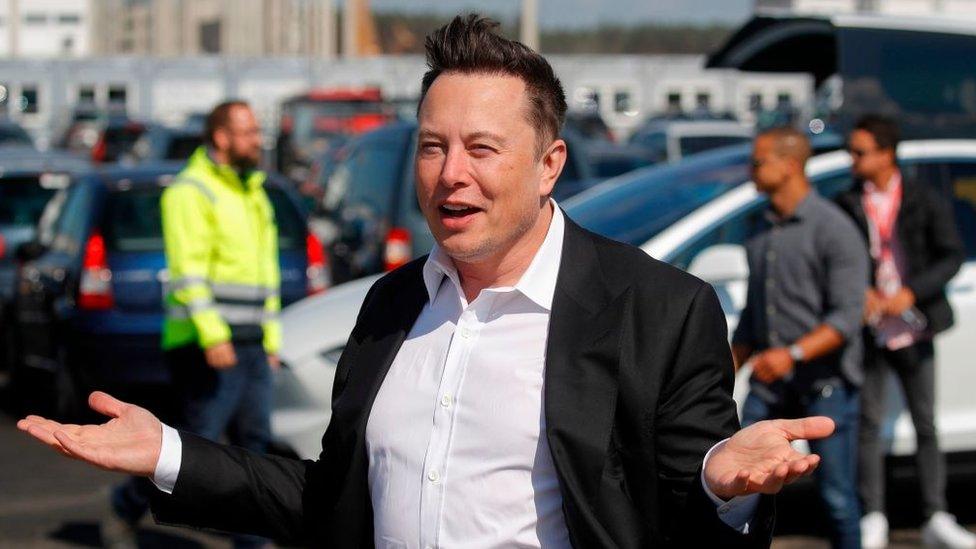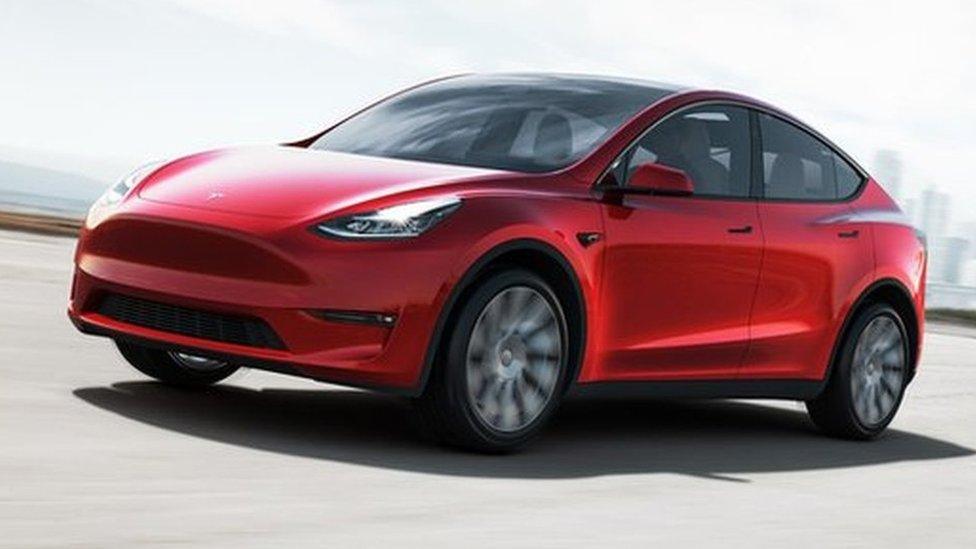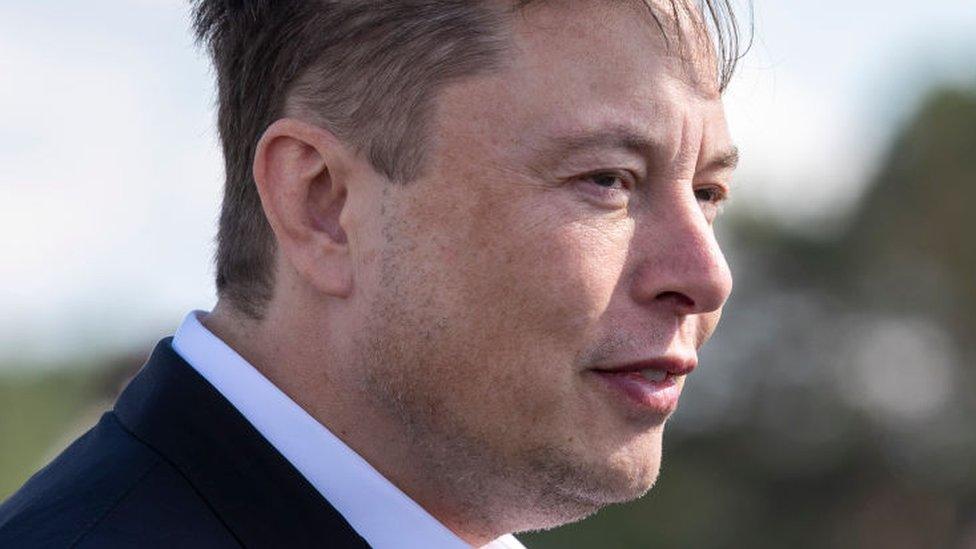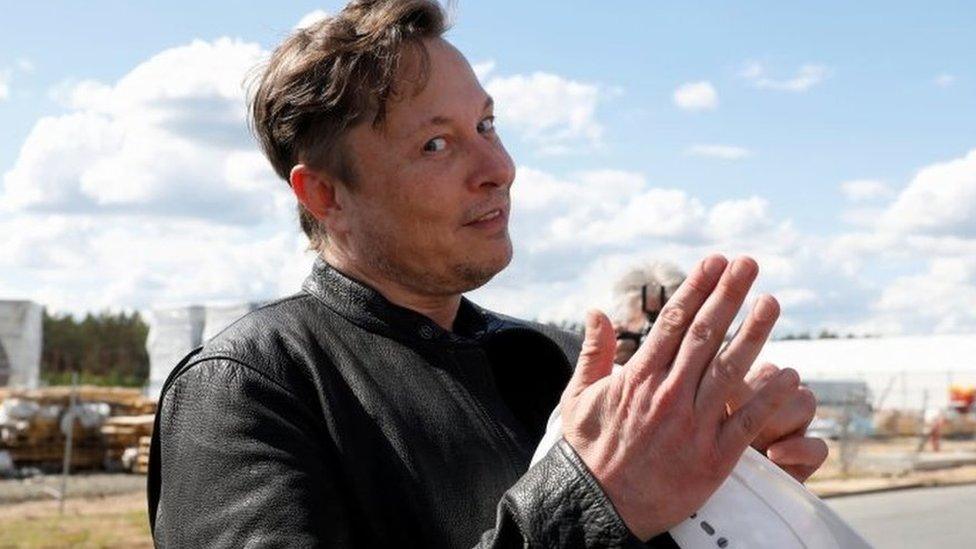Tesla: JP Morgan sues for $162m after Musk tweets
- Published

Elon Musk received a $299m payment as part of a compensation plan struck in 2018
JP Morgan Chase is suing Tesla for $162m (£121m) over tweets in 2018 by boss Elon Musk that he could take the electric car maker private.
The bank accused Tesla of "flagrantly" breaching a deal it claims should have triggered payments to JP Morgan.
Mr Musk's notorious tweets that he had funding to take Tesla off the New York stock market sparked volatility in the share price.
He later abandoned the move and was fined by the US financial regulator.
JP Morgan's suit, filed in a Manhattan federal court, says the companies had an agreement signed in 2014 that allowed the bank to buy Tesla shares at a set price and date.
Under the deal, Tesla sold so-called warrants to JP Morgan allowing the bank to purchase shares if the "strike" price was below Tesla's share price when the warrants expired in June and July 2021.
"We have provided Tesla multiple opportunities to fulfil its contractual obligations, so it is unfortunate that they have forced this issue into litigation," a spokesperson for JP Morgan said in a statement.
JP Morgan said the warrants contained standard provisions that allowed it to adjust their price to protect both parties against the economic effects of "significant corporate transactions involving Tesla," such as an announcement the company was going private.
Mr Musk's tweeted on 7 August 2018 tweet that he might take Tesla private at $420 per share and had "funding secured". He scrapped the plan 17 days later.
Tesla's share price rose approximately 10-fold by the time the warrants expired this year, and JP Morgan said this required Tesla under its contract to hand over shares of its stock or cash.
Failure to do so, said JP Morgan, amounted to a default.
Charges
Tesla has yet to comment publicly on the bank's lawsuit. But the company said in 2019 when news of the dispute emerged that JP Morgan was being "opportunistic" to take advantage of the share price volatility.
Mr Musk is an enthusiastic and frequently controversial user of twitter, and now has 64 million followers.
Only this month the billionaire caused a stir when he asked his followers in a twitter poll whether he should sell 10% of his Tesla shares. The vote was 'yes'.
His 2018 tweets on taking Tesla off the stock market led to charges from the powerful US regulator, the Securities and Exchange Commission, for misleading the market.
Mr Musk vehemently denied the charges, but eventually agreed a settlement that led to him stepping down as chairman of the carmaker. He and Tesla paid $40m in penalties.
- Published25 October 2021

- Published11 November 2021

- Published7 November 2021
